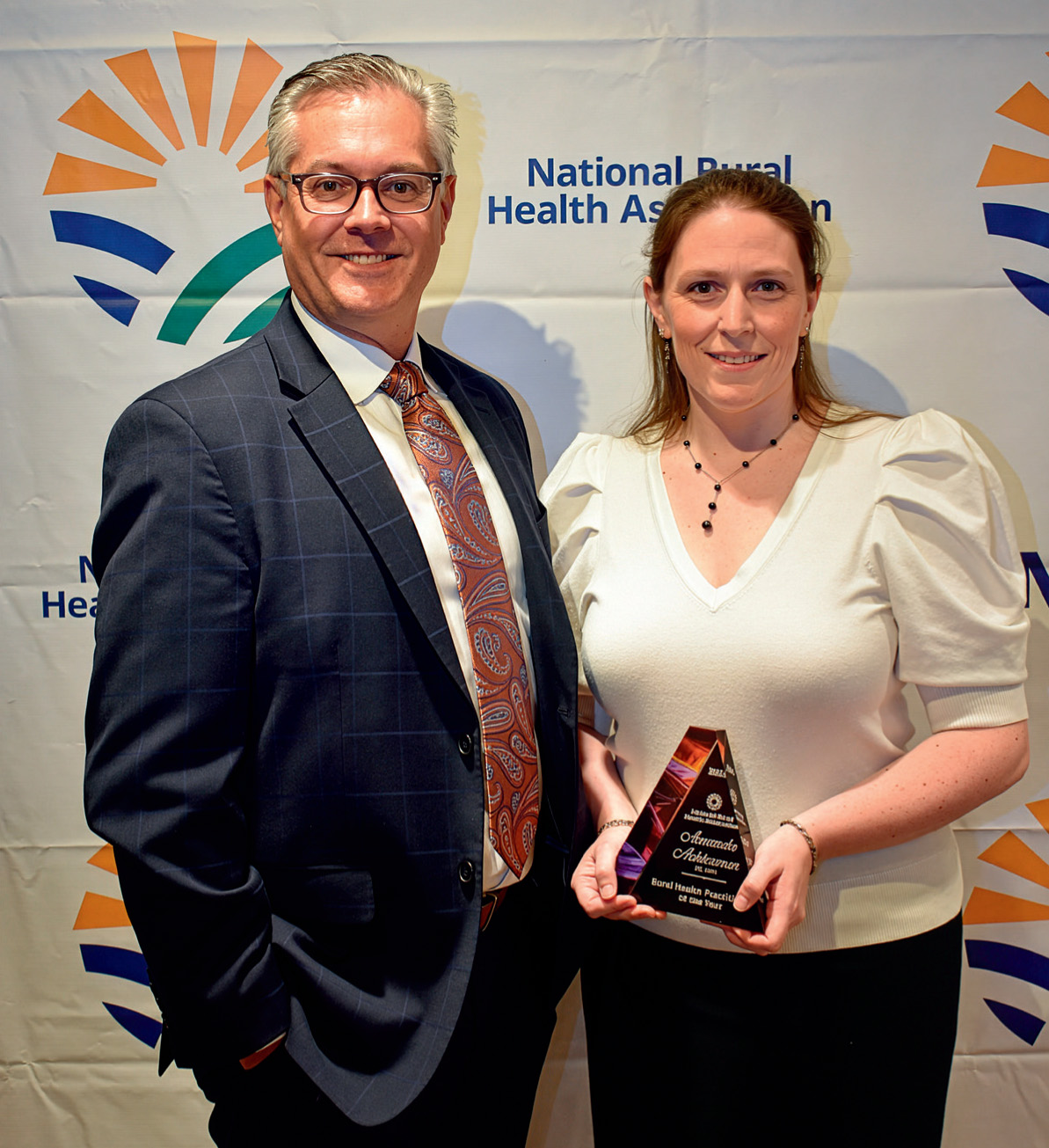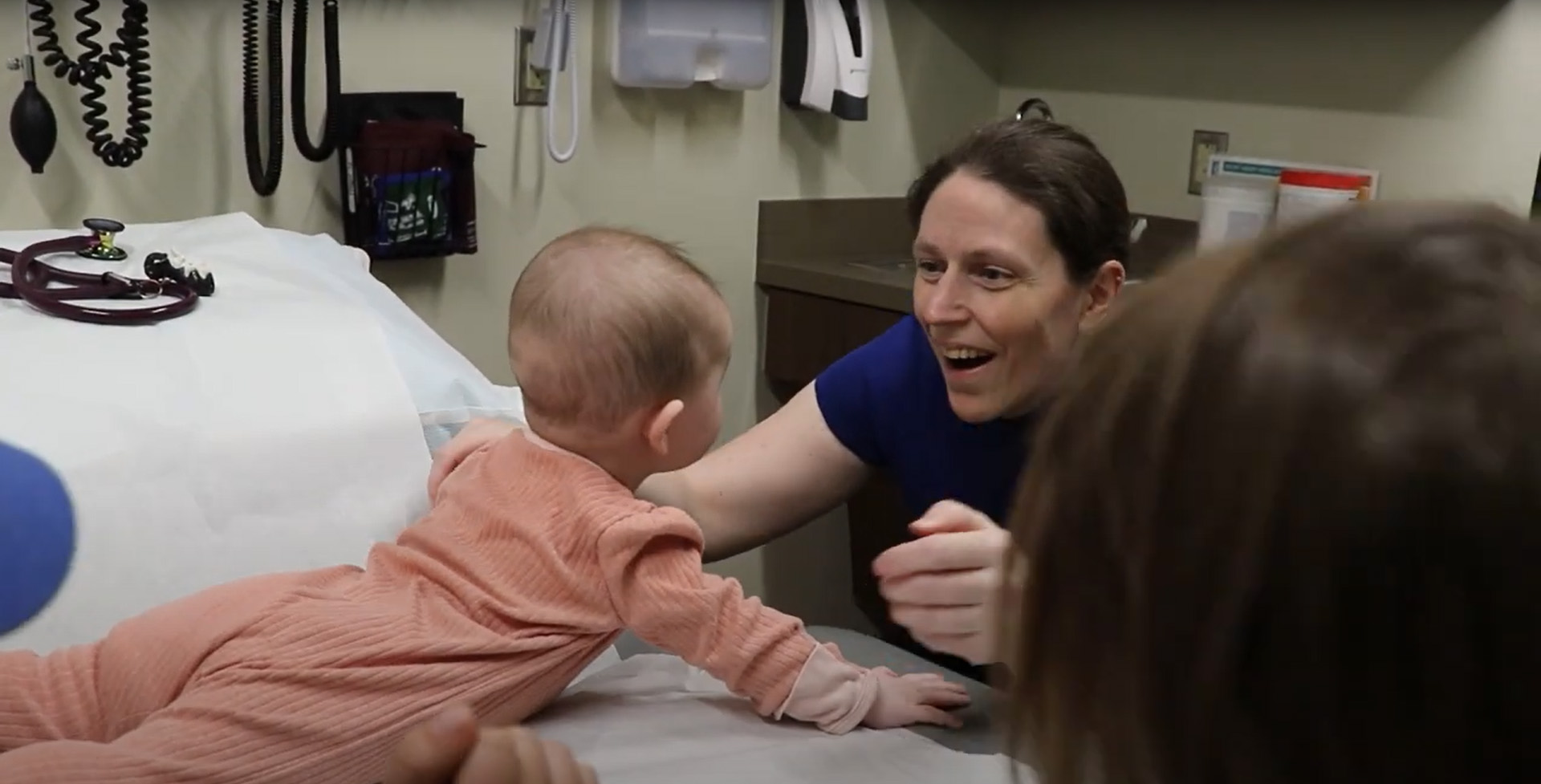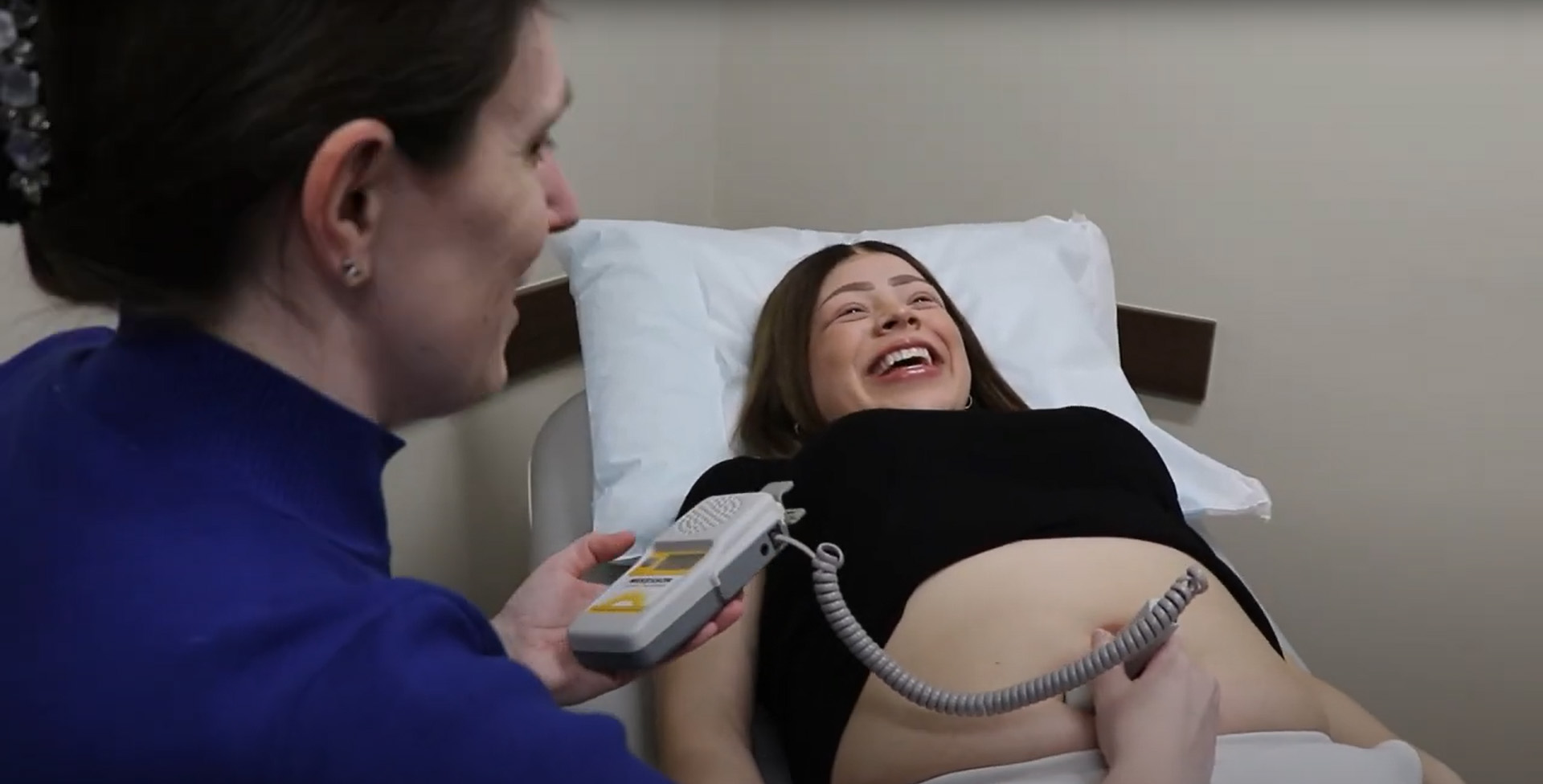Meet Amanda Achterman, NRHA’s Rural Health Practitioner of the Year
Two of NRHA’s 2025 Rural Health Award winners are from Summit Pacific Medical Center in Elma, Wash.: Amanda Achterman, our Practitioner of the Year, and Food as Medicine, our Outstanding Rural Health Program. These features highlight how providers and staff at this innovative critical access hospital are working to improve health and well-being in their rural community, which currently ranks 36th out of 39 Washington counties for health outcomes and 35th in overall health factors on the County Health Rankings and Roadmaps compiled by the Robert Wood Johnson Foundation. NRHA CEO Alan Morgan presents Amanda Achterman with her awardWorking as a health care provider in a rural community has surprising benefits. For Amanda Achterman, a family medicine physician at Summit Pacific Medical Center in rural Elma, Wash., one the best parts of a small-town career is learning more about her patients – and at times, getting to know their chickens.
NRHA CEO Alan Morgan presents Amanda Achterman with her awardWorking as a health care provider in a rural community has surprising benefits. For Amanda Achterman, a family medicine physician at Summit Pacific Medical Center in rural Elma, Wash., one the best parts of a small-town career is learning more about her patients – and at times, getting to know their chickens.
“What I love most is the little interactions – asking your patient how they’re doing, and they talk about their new chickens and leave a dozen eggs for you to say thank you,” she says. “Or talking about canning food and somebody mentions they have too many apples, and they want to share them with you. Those small human moments seem to happen more often in rural communities.”
"This is your community, and there’s ownership in it. You get to build relationships with people." – Amanda Achterman |
In Grays Harbor County, Achterman plays an essential role caring for her underserved community. She is one of fewer than 20 family medicine providers, fewer than two fluent Spanish-speaking providers, and fewer than four obstetrics providers for more 70,000 residents. She has been at Summit Pacific since 2017, making it her mission to serve patients who struggle with unique health challenges and barriers to care – and becoming part of the fabric of the community along the way.
"What I love most is the little interactions – those small human moments seem to happen more often in rural communities." – Amanda Achterman |
“The level of need drew me there. I didn’t go into medicine to not try to make a difference in people’s lives,” she says. “The other thing is the familiarity of it – this is your community, and there’s ownership in it. You get to build relationships with people. You can go to the grocery store and run into your patient, and they tell you how they’re feeling. It’s not just helping me – it helps other people find commonality too.”
While Achterman seems right at home working as a rural health care provider, she didn’t initially fit the profile of someone who would put down rural roots. Growing up in Portland, Ore., she was a self-described “city kid” – but she always felt a yearning for the wilderness. From the start, she loved the wide, open spaces in her parents’ hometowns near Vancouver, B.C., and Salem, Ore., where she spent her free time camping and exploring the countryside. When she started studying public health internationally, she worked alongside community health workers and midwives in rural Mexico, an experience that directly influenced her career choice.
"It’s important to have certain conversations with patients in a language they can understand." – Amanda Achterman |
“When I was in rural Mexico part of the work I did was with a midwifery school, training people in rural locations to recognize when a pregnancy or delivery might be high risk so we could improve outcomes,” she says. “That was fascinating to me from the public health aspect. That’s why I decided to pursue family medicine and do a residency with a high volume of OB patients.”
"Once it got out that I spoke Spanish people started referring their family and relatives. That tells me that it matters." – Amanda Achterman |
Getting to know patients personally has helped Achterman be a more effective advocate for some of the area’s major health concerns. Grays Harbor County has some of the state’s highest rates of substance use, smoking, diabetes, and obesity. These issues are compounded by a lack of transportation, intergenerational poverty, and limited access to healthy food. A 20-bed critical access hospital, Summit Pacific does not offer prenatal care, surgery, or labor and delivery, leaving many residents with long travel times for essential care.
Another important piece of the puzzle: Achterman is bilingual, helping her serve the county’s large Spanish-speaking population and provide culturally appropriate care. She points out that sometimes patients avoid seeking care because no one speaks their language, so removing that barrier makes them feel welcome. It also helps ensure vital details about certain diseases or conditions are not lost in translation, as this can lead to poorer outcomes.
"A rural career isn’t for everybody, but it’s good for people who like to do a lot of different things." – Amanda Achterman |
“It’s important to have certain conversations with patients in a language they can understand,” she says. “When you come to another country and you already feel fearful and think you might not belong and there are some people who don’t want you there – to walk into a health care setting and have your provider speak your language – there is value and importance in that. Once it got out that I spoke Spanish people started referring their family and relatives. That tells me that it matters.”
When it comes to getting other city kids to consider rural careers, Achterman suggests looking for people who like solving complex problems and focusing on many different tasks and types of medicine. She also encourages providers to focus on the human connection with staff and patients who are also neighbors and friends.
"Rural health care allows you to be creative and find a happy medium between what we know is the best medicine and what is feasible for a person’s life." – Amanda Achterman |
“A rural career isn’t for everybody, but it’s good for people who like to do a lot of different things,” Achterman says. “Being creative and finding solutions and recognizing that we have guidelines and recommendations – but they don’t fit the person every time. Rural health care allows you to be creative and find a happy medium between what we know is the best medicine and what is feasible for a person’s life. I like to try to solve the puzzle. I think family medicine in rural situations allows you to engage in science and medicine and people. Rural medicine is a great option for that.”
